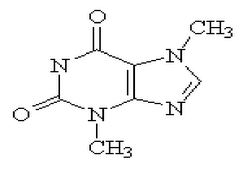The CBC reports on a British study that confirms what we pretty much already knew: that strapping little magnets to your wrist (or sticking them in your shoes) doesn't relieve pain. They don't improve blood flow, or align your cells, or anything like that. They just sit there and....do nothing. Apparently, a lot of these "therapeutic" magnets aren't even as strong as the ones that stick witty sayings and kids' artwork to your fridge door.
But really, this should be old news -- and in fact it is old news. Almost five years ago, the CBC reported on a study by the Mayo clinic which concluded -- guess what? -- magnetic bracelets don't relieve pain. Unfortunately, both these articles fall too much into the journalistic fallacy of binary objectivity -- reporting "both sides" as if there were a legitimate controversy. It falls to the CBC's Marketplace -- almost eight years back -- to give something approaching an unequivocal debunking of the quackery. So why are we still seeing reports on studies that take this sort of thing seriously?
But I have to love the language it is reported in (emphasis mine):
"There is no definite grounds of being absolutely sure that a magnet works or not," lead author Dr. Max Pittler, a complementary medicine specialist, said Monday....Pittler acknowledged, however, that the findings also mean that magnets could work — but the clinical trials weren't able to prove that.That's a mighty slim straw Dr. Pittler is grasping at there: "There's no evidence it works, but we can't prove beyond a shadow of a smidgen of a whisper of a doubt that they don't". Well of course not, lunkhead -- go read up on the difficulty of proving a negative. I don't know what the title "complementary medicine specialist" signifies in his case, but I can't help wondering if it has something to do with the good doctor's odd reluctance to say forthrightly what this study merely confirms: magnet therapy is a load of bollocks.
C'mon Dr. Max, you can do it.
The article gives the last word to Toronto naturopath Kieran Cooley, who recommends acupuncture and mild exercise over magnets. But even he can't just come out and say a definitive "bollocks":
"There are clearly some people [in the British analysis] who are benefiting from the therapy. There are other people who are not benefiting very much and a few people who seem to be getting worse."Um, as someone who has suffered from sporadic bouts of back pain for decades, I know that getting better, getting worse or staying the same is exactly what the condition does even if you do nothing. Which is exactly what the magnets are doing, right?
However, Cooley's mention of acupuncture is interesting, because another recent study reports that acupuncture works better than conventional therapies, such as analgesics, physiotherapy and exercise. One significant aspect of that study is that the acupuncture group was divided in two: one received real acupuncture, according to the traditional method of sticking needles into specific points held to control the flow of qi while the other patients got sham acupunture, in which the needle pokes specifically avoided all the "correct" acupuncture points. The result: there was no significant difference between the real and sham acupuncture cohorts, though both did better than the conventional therapy group.
This would seem to mean that:
- The whole theory of qi is wrong -- there are no "meridians" of the stuff running up and down the body, influencing our health.
- Sticking needles in the skin may nonetheless have some effect -- maybe stimulating the release of hormones? -- that is as good or better than the usual therapies.




No comments:
Post a Comment